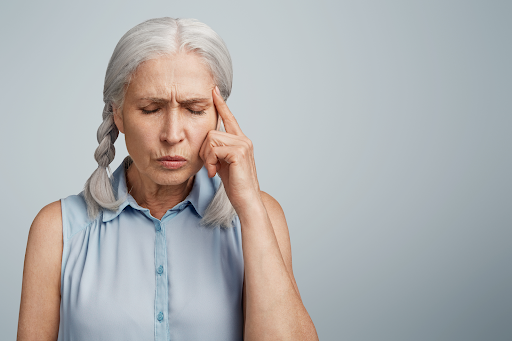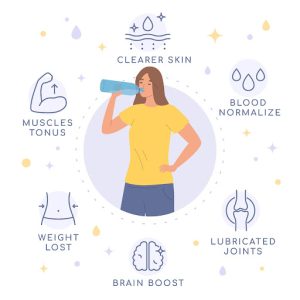Disclaimer:
This article is for information purposes only. It is not a substitute for medical advice or treatment. Seek medical care for your treatment.
What is Dementia?
Dementia is an ongoing disease that gets adverse with the passage of time. It affects the cognitive functions like memory, issue-solving skills, language and daily life activities. It is also called neurocognitive disorder. Dementia is not a disease itself rather; it is a set of symptoms caused by other conditions. 5%-8% adults above 65 years of age have some type of dementia. Every dementia patient experience is different through the 7 stages of dementia. Each stage of dementia comes with unique symptoms or sometimes it worsens the existing symptoms. Dementia stages assist you to determine the right time when you need the attention of your loved ones.
Stages of Dementia:
No specific Dementia stages can be defined. However we mention 7 stages of dementia, which are enlisted below:
- No cognitive impairment:
Stage 1 dementia is normal mental functioning without any intellectual decrease. In first 3 stages in some people there are evident symptoms to be diagnosed but tests may disclose the problem. While some cognitive disorder might be there, stages 1, 2 and 3 on the GDS are identifies as pre-dementia stages.
- Mild cognitive decline:

Stage 2 dementia indicates normal memory mistakes for example, you might be wondering that where did you put the keys or what is the name of your loved one. Still, you might be able to work independently. A notable amount of adults go through age-related forgetfulness and the caretakers or relatives fail to notice such mild disability. This reveals why stage 2 dementia is commonly known as ‘age-linked memory impairment’ on GDS. According to a research approximately 40% of people over the age of 65 years have age-associated memory impairment-in the U.S. about 16 million people and every year only 1% of them will proceed to dementia. Some obvious symptoms of stage 2 Dementia are:
- Memory loss that disrupts everyday life
- Fail to recall the names of your friends, family and prior associates
- Problem in organizing things
- Behavior changes
- Mild cognitive impairment:
When your memory and cognitive decline becomes more frequent, which is easily distinguishable by your caregivers or relatives then you might be suffering from mild cognitive impairment. Stage 3 dementia does not obstruct our everyday life. According to National Institute on Aging every 8th in 10 people are more likely to develop Alzheimer’s disease within seven years. For better treatment, it is significant to identify the symptoms of MCI:
- Not remembering the events or appointments
- Minor memory lapse
- Getting lost while travelling
- Decline in work performance
- Difficulty in finding the correct words
- Repetition of words and difficulty in expressing
- Difficulty in organizing and focusing
- Facing difficulty in problem solving
- Unable to drive safely
- Disorientation
- Moderate cognitive deficits:

In this stage a person shows obvious dementia signs of cognitive decline and personality changes. When a person reaches the stage 4 of dementia he is typically diagnosed with dementia and it is officially diagnosed by the GDS as a mild dementia. At this stage people might be able to function independently but relatives and doctors can clearly distinguish the significant signs that dementia is aggravating, including language issues and difficulty in problem solving. Some of the symptoms are:
- Isolation
- Mood swings
- No response
- Difficulty in handling money
- Decline in intellectual sharpness
- Difficulty in performing routine tasks
- Forgetting events
- State of denial regarding the symptoms
- Troubling organizing
- Moderately severe decline:
It is the mid-stage in the seven stages of dementia. In this stage a person may fail to carry normal routine activities for example, dressing, bathing or normal activities without any assistance. This stage of dementia stays for 2-4 years, even though every person will proceed at different rate. 5th stage dementia patient needs proper supervision. They might remember some information about themselves such as their names, their kid’s names but might not be able to remember their previous address, far relatives or grand children’s names. Some of the symptoms are:
- Memory lapse such as forgetting personal information or events
- Roaming around aimlessly
- Disoriented and forgetfulness
- Sundown syndrome
- Decline in problem solving ability
- Severe cognitive decline:

In this stage the patient may face issues regarding sleep, behavior or social interaction. You may need full-time assistance as the symptoms get worse. You can pre-plan patient’s daily routine by discovering symptoms and monitoring your loved one’s potential to perform activities. Some of the significant symptoms are:
- Sleep issues
- Involuntary urination
- Depression and anxiety
- Change in Personality and emotions
- Need help for going to bathroom
- Noticeable memory loss
- Difficulty in distinguishing loved ones
- Very severe cognitive impairment:
It is also known as late-stage dementia; people can’t take care of themselves and need proper assistant. Severe dementia patient’s loose verbal control and physical movement is severely hampered. Symptoms of stage 7 dementia:
- Difficulty in speaking
- Zero physical coordination and being dependent on helper to move
- Difficulty in breathing, chewing and swallowing
Conclusion:
Learning about dementia helps your loved ones to plan accordingly. You can get your legal, financial and health care plans according to your desire. Your health care team or team members provide you with all the significant information and support. Your team can help you connect with dementia support groups, which can be really helpful in coping with dementia.




